Studying Physiotherapy in Georgia can serve as a gateway to employment or further education in top European countries or the U.S. Additionally, the cost of studying physiotherapy in Georgia makes access to these opportunities more feasible and successful.
It is important to note that the conditions for studying in Georgia are such that the country itself can also be considered a suitable destination for living and working in this field. Many students choose to stay and work in Georgia after completing their physiotherapy studies. In this article from Elm Vira, we will explore the study conditions and costs associated with pursuing physiotherapy in Georgia.
Reasons to Study in Georgia
Georgia is home to several prestigious universities, which attract international students looking to pursue higher education. Currently, about 50 universities operate in the country, including 20 public and 30 private institutions. These universities offer a variety of programs taught by experienced professors in both English and Georgian. Additionally, some universities operate as binational institutions, such as Caucasus University, which accepts students under a U.S.-Georgian partnership.
One of the main reasons international students are drawn to studying physiotherapy in Georgia is the lack of a requirement for IELTS or TOEFL certificates. In other words, foreign students do not need to provide English language proficiency scores to gain admission. Another key factor is the affordable cost of studying physiotherapy in Georgia. Moreover, many top European countries recognize and accept degrees awarded by Georgian universities. After completing their studies, international students in Georgia also have the opportunity to obtain residency in Europe and the U.S.

Studying Physiotherapy in Georgia
The physiotherapy program in Georgia was launched in 2010, and since then, many students have completed their education in this field. The duration of a physiotherapy degree typically ranges from 3 to 4 years, which is the required period to obtain a bachelor’s degree. Some of the key courses offered in this program include Public Health Policy and Disease Prevention, Pathology and Medical Management, Comparative Anatomy and Biology, General Physics, and Psychology.
To become a licensed physical therapist, students must complete the Doctor of Physical Therapy (DPT) program, which takes approximately 30 to 36 months. After finishing a four-year bachelor’s degree, students must complete an additional three-year DPT program, making a total of seven years of study to qualify as a professional physiotherapist. Additionally, a master’s degree in physiotherapy typically takes two years to complete.
Cost of Living and Tuition Fees for Physiotherapy in Georgia
The cost of living and tuition fees for studying physiotherapy in Georgia are significantly lower compared to other European countries, allowing students to pursue their education at an affordable rate. On average, the estimated cost of living in Georgia is between $400 to $600 per month, depending on the student’s lifestyle.
It is important to note that living in higher-end areas of Georgia may lead to increased expenses. Before moving to Georgia for physiotherapy studies, students should carefully evaluate tuition fees and other related costs. For instance, international students pursuing a Bachelor’s in Rehabilitation Sciences or a Doctorate in Physiotherapy are required to pay $5,360 per year in tuition fees.
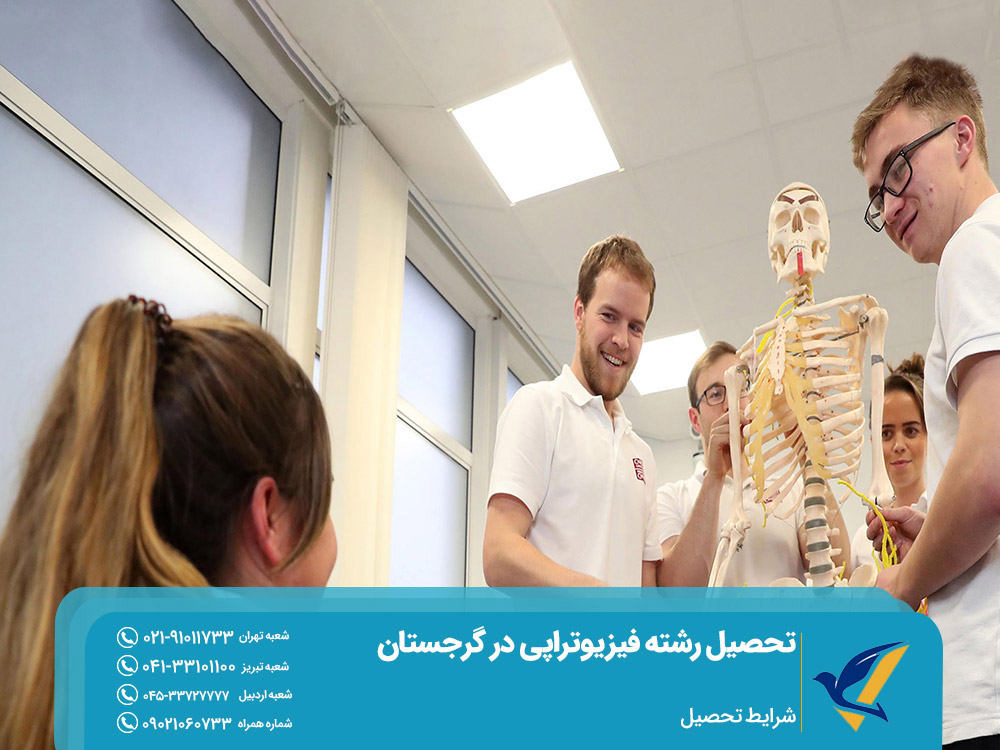
Conditions for Studying Physiotherapy in Georgia
Georgia is home to several physiotherapy schools that offer a variety of academic programs for students residing in the country. To grant degrees to applicants, physiotherapy schools in Georgia must be accredited by the American Physical Therapy Association (APTA). Below is a list of some recognized schools offering physiotherapy programs in Georgia:
- Emory University
- Armstrong Atlantic State University
- Georgia Health Sciences University
- Georgia State University
In addition to these university-based physiotherapy schools, there are other institutions offering physiotherapy programs in Georgia, including institutions like Penn Foster Professional School and Grand Canyon University.
Duration of Physiotherapy Studies in Georgia
Generally, you can complete a Bachelor’s degree in Physiotherapy in about four years. However, to begin working as a physical therapist, you will need higher qualifications. This requires completing a Doctor of Physical Therapy (DPT) program, which typically takes 30 to 36 months. So, in addition to the four years of undergraduate studies, you will need to spend an additional three years completing the DPT program. In total, to become a licensed physical therapist in Georgia, you will need to invest at least seven years in education.
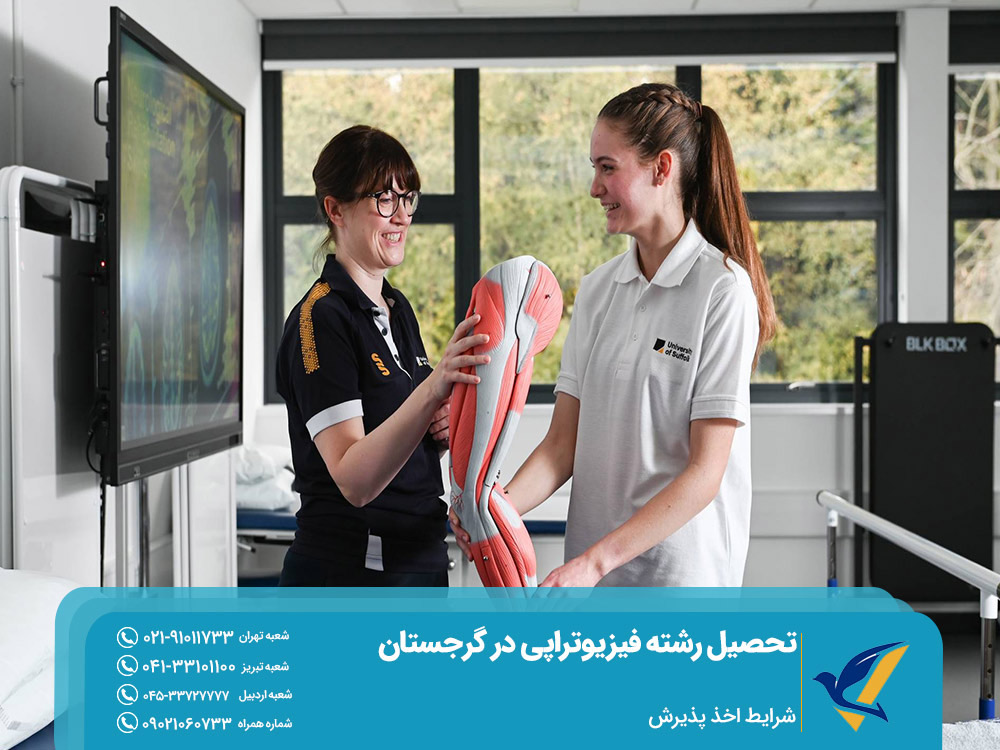
Requirements for Admission to Physiotherapy Programs in Georgian Universities
Considering the numerous benefits of studying abroad in Georgia, it is important to understand the admission requirements for physiotherapy programs. To receive a degree in physiotherapy, you first need to complete four years of undergraduate study. The program includes courses such as general statistics, psychology, general physics, comparative anatomy and biology, pathology and medical management, public policy, and disease prevention, among others. Below are additional admission requirements for physiotherapy studies in Georgia:
- High school diploma or equivalent certificate
- Good health
- Proficiency in English or Russian
While the cost of studying physiotherapy in Georgia is relatively low, one of the primary admission requirements is a minimum level of English proficiency to study at the university level. If you have an IELTS or TOEFL certificate, you may be directly accepted without further examination. For applicants who do not possess these certificates, they will need to take an English proficiency test at the university’s language center or gain English proficiency for one year before entering the university. Applicants whose native language is English are not required to submit a language certificate or take a test.
Physiotherapy Universities in Georgia
Physiotherapy education in Georgia began in 2010, and due to the low tuition costs, many students have completed their studies in this field since then. Some of the courses offered in the physiotherapy program include public policy and disease prevention, pathology and medical management, comparative anatomy and biology, physics, and psychology.
It is important to note that physiotherapists play a crucial role in the healthcare industry as they assist individuals in rehabilitation, improving mobility, and managing pain. They are compassionate, reliable, and able to manage high levels of stress. The undergraduate program in physiotherapy in Georgia takes between three to four years to complete.
To receive a physiotherapy degree and begin practicing as a physical therapist, students must complete the DPT (Doctor of Physical Therapy) program. Therefore, after completing the bachelor’s degree, the DPT program is mandatory. Below are some of the top universities in Georgia for studying physiotherapy:
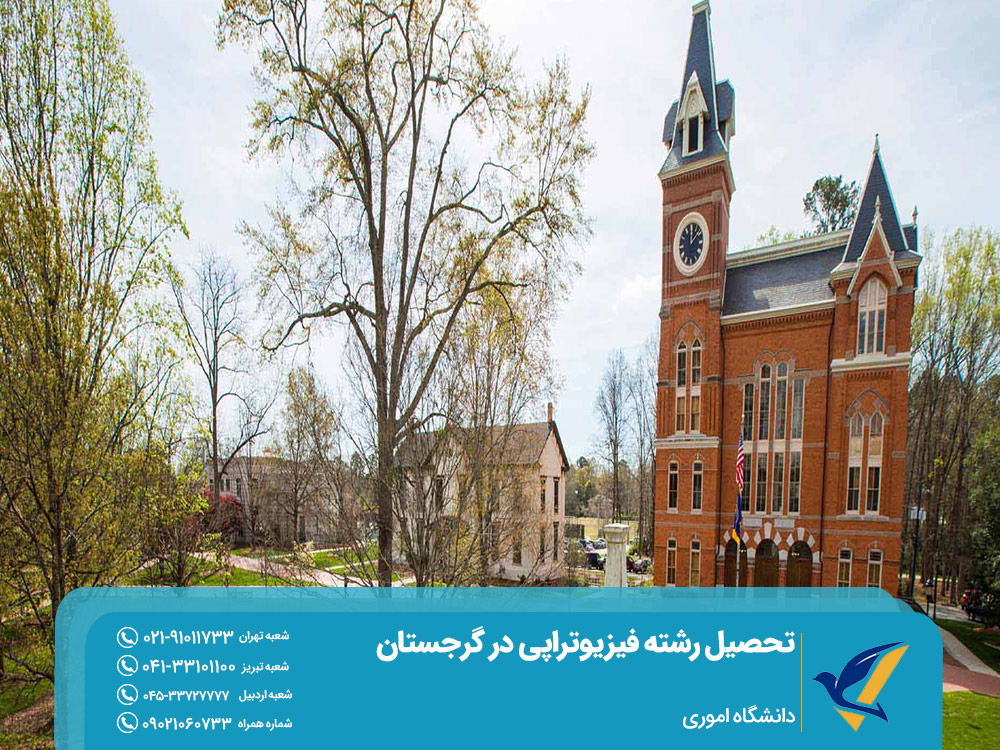
- Emory University
Emory University is a top-ranking private institution known for its outstanding liberal arts colleges, graduate and professional schools, and one of the best healthcare systems globally. Located in Atlanta, this university collaborates with schools, centers, and partners. Emory offers two programs physical therapy and occupational therapy. It is a large private university ideal for studying physiotherapy in Georgia.
- Mercer University
Founded in 1833 in Georgia, Mercer University has gained significant popularity due to the affordable cost of physiotherapy education in Georgia. In 2018, the university was ranked among the top national universities by U.S. News Global Report. Mercer University offers two programs physical therapy and occupational therapy. It is a medium-sized private university well-suited for studying physiotherapy in Georgia.
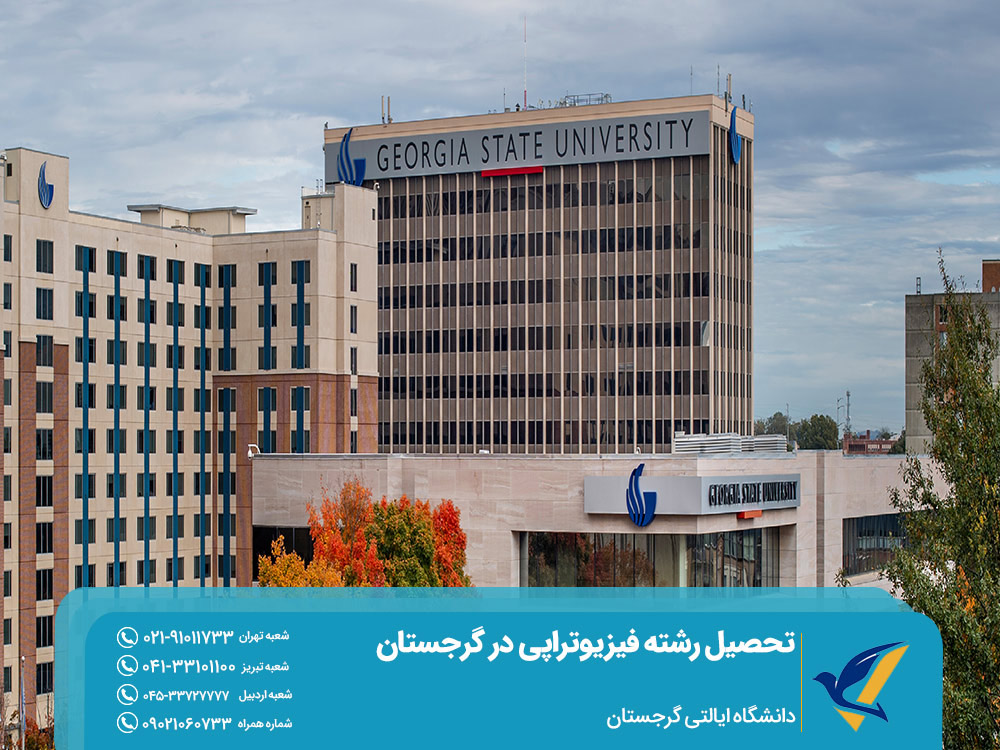
- Georgia State University
Georgia State University is an innovative public research institution located in Atlanta, a major cultural and economic center in the Southeastern United States. With six colleges and the affordable cost of physiotherapy education in Georgia, this university provides exceptional facilities for students. Georgia State University offers two programs physical therapy and occupational therapy. It is a large public university ideal for studying physiotherapy in Georgia.
- Armstrong State University
Located in the vibrant city of Savannah, Armstrong State University is one of the universities for studying physiotherapy in Georgia. Students can choose from over fifty programs in various fields, including sciences, business, education, public health, fine arts, humanities, and healthcare professions. The university’s College of Health Professions is the largest producer of health professionals at the bachelor’s level in Georgia. Armstrong State University offers four programs in physical therapy and occupational therapy. It is a medium-sized public university with the most affordable cost for studying physiotherapy in Georgia, situated in a moderate-sized city.

- Augusta University
Augusta University is a public university and a medical academic center located in Augusta, Georgia. Notably, this university has medical campuses in Savannah, Albany, Rome, and Athens. Augusta University has over 56,000 graduates and is accredited by the Southern Association of Colleges and Schools. It offers two programs physical therapy and occupational therapy. Augusta University is a medium-sized public university with the most affordable cost for studying physiotherapy in Georgia, situated in a moderate-sized city.
Rankings of Physiotherapy Universities in Georgia
Most of Georgia’s universities and colleges are located in the metropolitan city of Atlanta, a hub of higher education with over 250,000 students. Other institutions can be found in cities like Athens, Augusta, and Savannah. Universities offering programs in medicine, nursing, and physiotherapy in Georgia are also well-ranked globally. Below are the rankings of some of the universities:
- Emory University: Rank 21
- Mercer University: Rank 153
- Georgia State University: Rank 211
- University of North Georgia: Rank 40
- Augusta University: Rank 381 – 293
- Armstrong State University: Rank 381 – 293
Students can benefit from scholarships, both full and partial, to cover the cost of studying physiotherapy in Georgia. The Georgian government and universities offer scholarships to international students and local citizens annually, which are available at various academic levels.
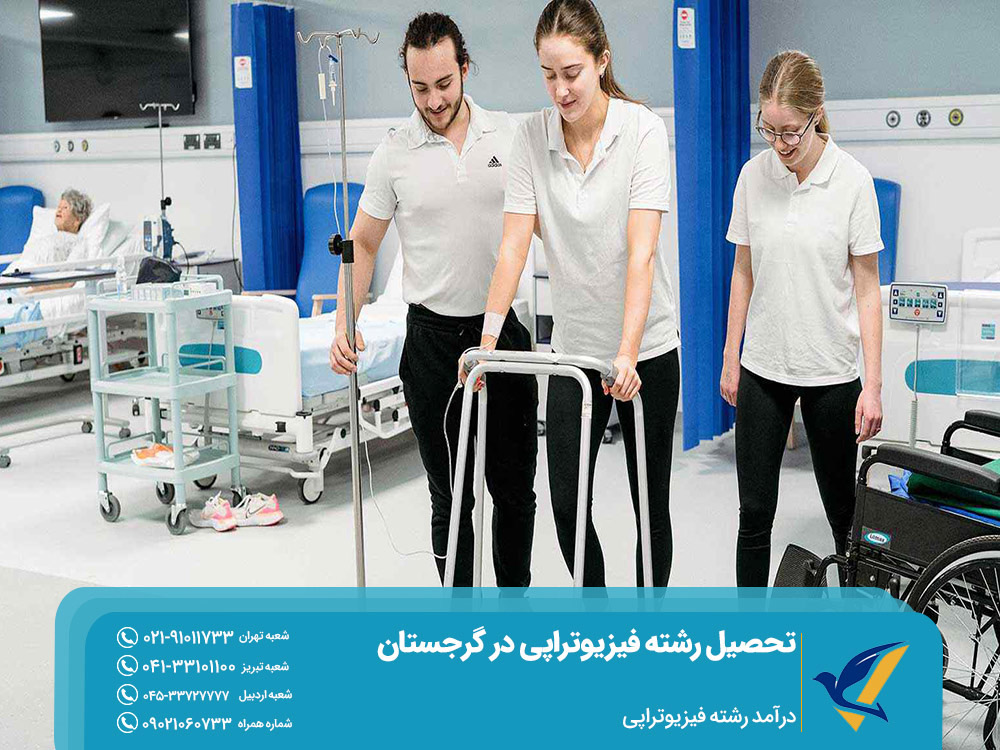
Studying Physiotherapy in Georgia: Income of Physiotherapists in Georgia
Physiotherapists and assistants need to obtain a work permit to practice in Georgia. To get a work permit, individuals must graduate from an accredited physiotherapy program and pass an exam. The Commission on Accreditation in Physical Therapy Education (CAPTE) accredits PT and PTA degree programs. On average, the salary for physiotherapists in Georgia is $86,320 per year. Employers typically offer benefits such as health insurance and retirement savings plans. However, physiotherapists’ salaries in Georgia are slightly lower than the national average. The demand for physiotherapy education and jobs in Georgia is expected to grow by nearly 30% by 2026.
Conclusion
Studying physiotherapy in Georgia is a high-quality yet very affordable option for many students. The tuition fees at universities in Georgia vary, but they tend to be reasonably priced within the range of affordable options. Overall, the cost of studying physiotherapy in Georgia is reasonable, making it an attractive destination for many students seeking an international education.
For more information about studying in Georgia, you can get a free consultation by sending a request form. Elm Vira Immigration Institute, with its outstanding experience in educational immigration, collaborates with consultants, lawyers, and legal experts to provide the best legal pathways for studying at top universities worldwide. Our mission is to offer the best legal routes and help choose the best universities based on the applicants’ conditions.
میانگین امتیازات 5 از 5
Vote count: 2 Vote